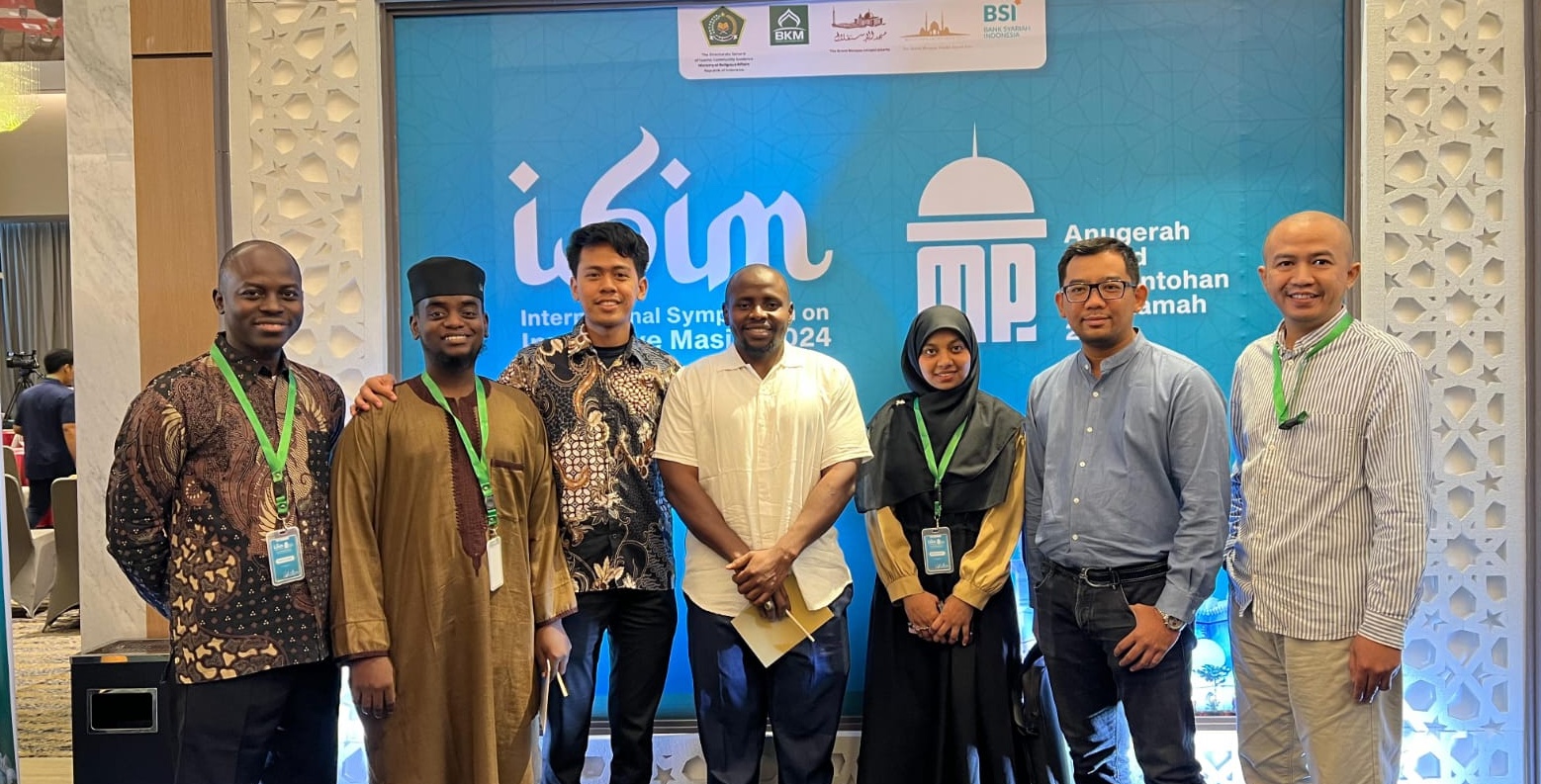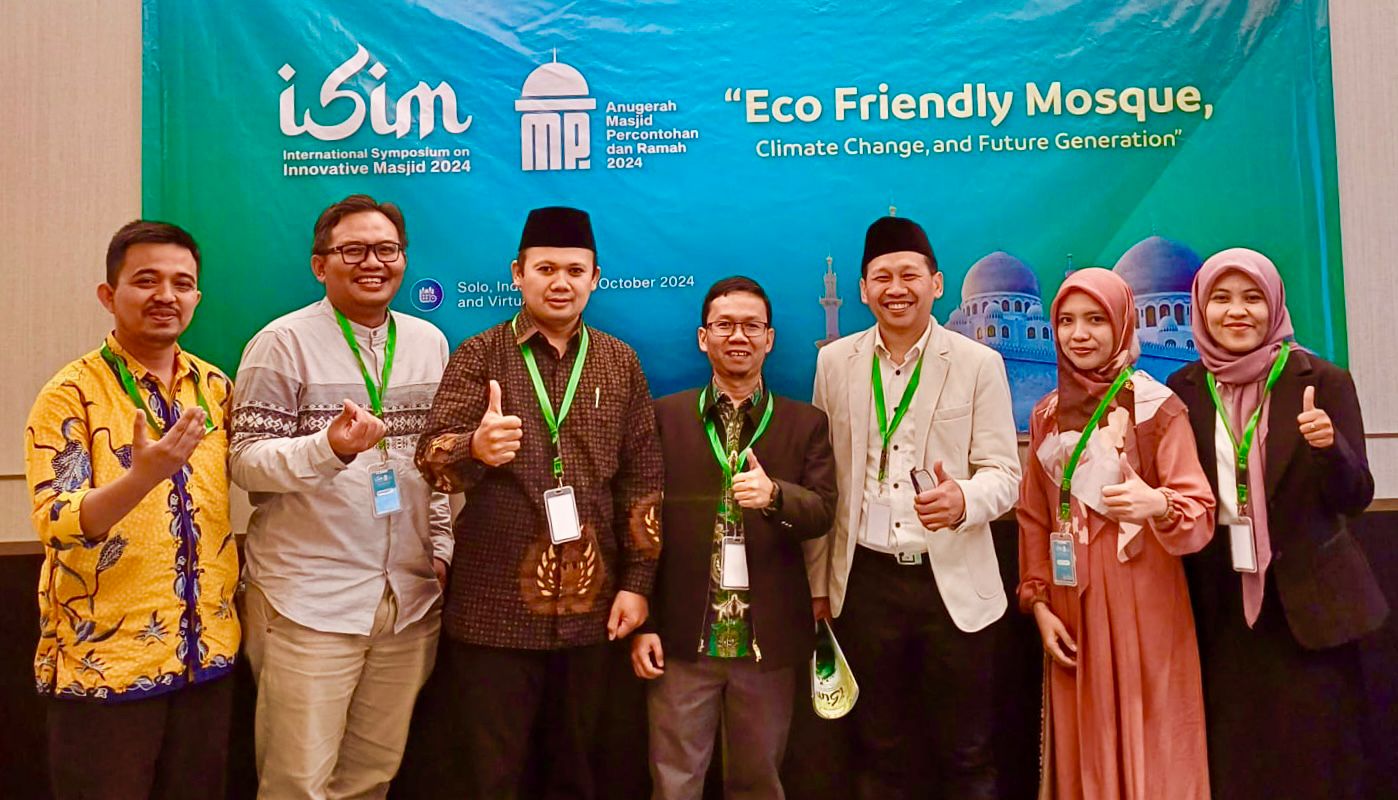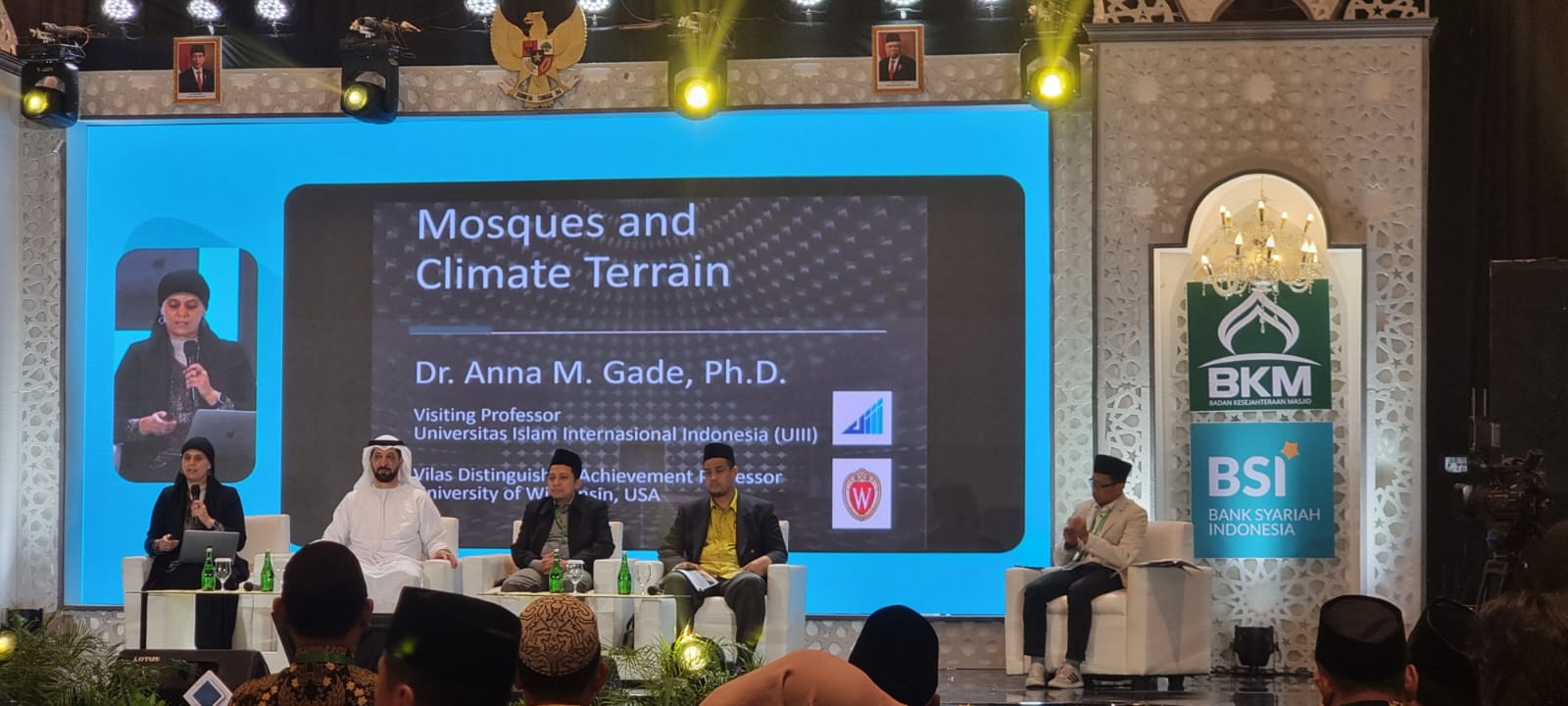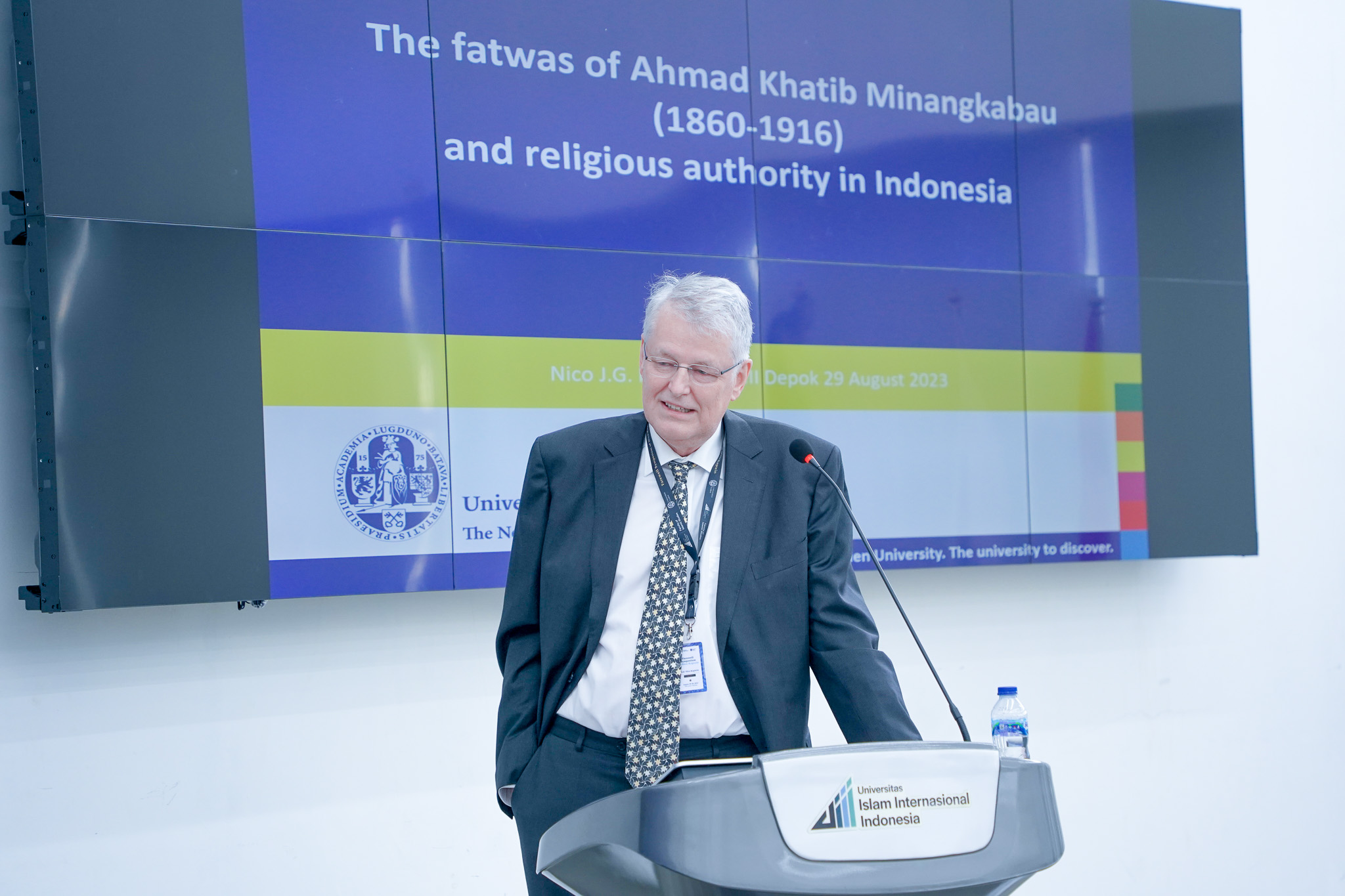UIII Students Shine at MORA’s Symposium on Eco-Friendly Mosque Innovations
October 11, 2024Contributor: Supriyono | Editor: Dadi Darmadi

Surakarta, October 3, 2024 – Students from Universitas Islam Internasional Indonesia (UIII) took center stage at the International Symposium on Innovative Masjid (ISIM) 2024, presenting pioneering research on eco-friendly and sustainable mosque practices.
The symposium, organized by Indonesia’s Ministry of Religious Affairs (MORA), aimed to encourage the development of environmentally friendly mosques across Indonesia and beyond. Held in Surakarta from October 1-3, the event gathered scholars, architects, and environmental advocates dedicated to integrating sustainability within Islamic places of worship.
Saemah Shamim, a PhD candidate at UIII’s Faculty of Social Sciences (FOSS), captivated attendees with her paper, “A Comparative Study of Green Building Approach in Nepalese Masajids; A Case Study of Kashmiri and Jama Masjid.” Her research on sustainable mosque architecture emphasized the benefits of green building practices in Nepalese mosques, drawing attention to the need for sustainable architectural design within religious spaces.
Syamsul Haq and Mariati Aprilia Harahap, students from the Faculty of Islamic Studies, presented on the importance of community resilience and climate adaptability in mosques. Haq’s paper, “Climate Resilience from the Mosque: Building Community Capacity to Deal with Climate Change Impacts in Case of Masjid Al Makmuriyah in Kepulauan Seribu,” underscored the mosque’s potential as a hub for climate education. Similarly, Harahap’s work, “Towards Climate Masjids: Based on Energy, Water, Recycling, and Eco Practices,” highlighted practical eco-friendly practices that can be incorporated into mosques.
From the Faculty of Social Sciences, Abdul Saboor, whose research, “Green Mosques: Catalysts for Environmental Stewardship and Sustainable Development in Muslim Communities,” advocates for a mosque-centered approach to environmental sustainability, emphasized the mosque’s role in promoting environmental stewardship within Muslim communities.
Meanwhile, Ali Samaila from the Faculty of Islamic Studies added to the discussion with “Islam and Ecology: An Appraisal of Islamic Ethical Framework for the Preservation of the Environment.” His research examined how Islamic teachings provide a powerful ethical foundation for environmental conservation, promoting eco-conscious practices among Muslim congregations.
Rounding out the student presenters was Mishbah Khoiruddin Zuhri, also from the Faculty of Islamic Studies, who explored the links between spirituality and climate resilience. His paper, “Spirituality and Climate Adaptability: The Role of Indonesian Faith-Based Organizations in Climate Resilience and Sustainability,” discussed the mosque’s potential role in climate adaptation through faith-based community support.
Overall, the student presentations highlight the role of mosques in climate action and sustainability. UIII’s presence at ISIM 2024 illustrates the university’s commitment to fostering thought leadership in sustainable development and environmental consciousness within Islamic communities. The symposium successfully showcased how Islamic principles can intersect with modern environmental practices, with UIII students at the forefront of innovative research to transform mosques into hubs of sustainability.
- UIII Extends Application Deadline for 2025 International Admissions
- What Does Eid al-Fitr Mean for the UIII Academic Community?
- UIII PhD Scholar Ararat Kostanian Delivers Lecture at Armenia's Yerevan State University
- Swedish Ambassador to Indonesia Applauds UIII’s Vision, Explores Future Collaboration
- Depok Mayor Supports UIII as the Green Lung of Depok and Beyond
- Depok Mayor Pledges to Build Performance Hall at UIII
- New Parking Facility Launched, Part of UIII-Sentra Medika Hospital Partnership
- Yogyakarta’s UII Won 1st FisFastFest’s Clash of Campuses
- Vice Minister of Religious Affairs Praises UIII as a Global Hub for Islamic Education
- Hurray!! UIII Wins Football Championship


